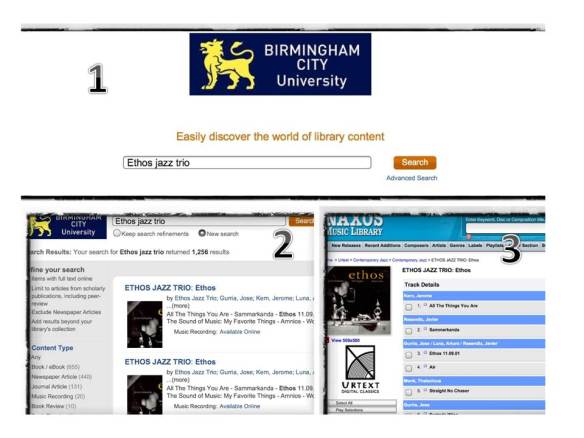Over a month ago Rebecca Price from Proquest delivered some training for our librarians entitled ‘train the trainer’ which was a useful overview on how Summon works and how to introduce it to students.
Unfortunately not all our librarians were able to attend this session so I have been delivering this session to a few groups of librarian adapting the content to reflect our own experience and instance of summon. (see below for presentation slides)
From meetings and discussions it was clear that having an overview on how Summon worked gave more confidence in the system and helped discussion on its use and potential issues, in hindsight I think it would have been useful to have this training very early on in the implementation process.
It has also been interesting to see how many changes and improvements have been made to Summon in the last year, with increased content, improved auto-complete etc. I am encouraged by this pace of change and am looking forward to see how summon develops and meets expectations.
Train the trainer
I start with an overview of why we have Summon and a key driver is to improve student experience, at the moment all we provide our students with is lists of databases and therefore they need to have a good idea about what it is they want and which database would contain that information before they even start their search.
I then talk about how Summon indexes a multitude of information, from ejournals, newspapers, ebooks etc. I think its important to highlight the range & variety of sources as this in turn effects the results list. Its also helpful to explain the record they see in the results list is the summon master record which is crafted from duplicate resources.
Talking of what Summon covers always leads to the inevitable question about what it doesn’t cover. While the majority of our full text online journals, ebooks and records from our library catalogue are covered we do have a number of A&I databases, directories, industry standard resources which are not covered, a list of which we will be making available to staff & students. We are also discovering that in some cases not the full breadth of the database is covered or we are not able to link directly to article level.
I follow with doing a search on summon, reminding staff that boolean operators will work if typed into the search box. On seeing the vast number of results I can then talk about the importance of using the refine features in the left hand column to narrow down results. I think this is a useful opportunity to show the one of the 7 lenses in information literacy, evaluate. I often choose to refine by Subject Terms in order to highlight the include and exclude option, which add in the NOT and OR operators. I also like to remind people that some of those refine options are dynamic and depend on the results retrieved.
I round up the presentation noting issues that have been raised over the last few months as we have been working with system and highlighting what we can do to resolve or accommodate these issues.
I think Summon is not the answer to everything and the key is using it in the correct context, we are retaining all our current routes therefore if someone is looking for a specific book from our library, they can continue to use the catalogue. It is clear that dependant on the subject area and the faculty it may be useful starting point for 1st years while for others it may make more use to introduce it at a later point in their studies. Summon is a valuable first step in the research process, a useful starting point.
We are now much clearer about what is not covered by Summon & therefore in some subject areas we may stick to our current routes and continue to direct staff and students to specific databases, for example with Law.
We are still working on the authentication and look to be running a mixed economy of EZproxy and AthensDA which is not our ideal as there is still opportunity for our staff and students to encounter a log in challenge.
I think this year will be extremely useful in understanding more about Summon and more about the expectations from our staff and students all of which will help in our development and presentation of the service. While working towards the implementation date of next month it is also clear that this is only the start of the process, this is not a conversation that will be ending any time soon



 The first of our Autumn series of presentations is happening in the Training Room, City North on Friday 9th October 2009, at 10.30am when ExLibris will be showing
The first of our Autumn series of presentations is happening in the Training Room, City North on Friday 9th October 2009, at 10.30am when ExLibris will be showing